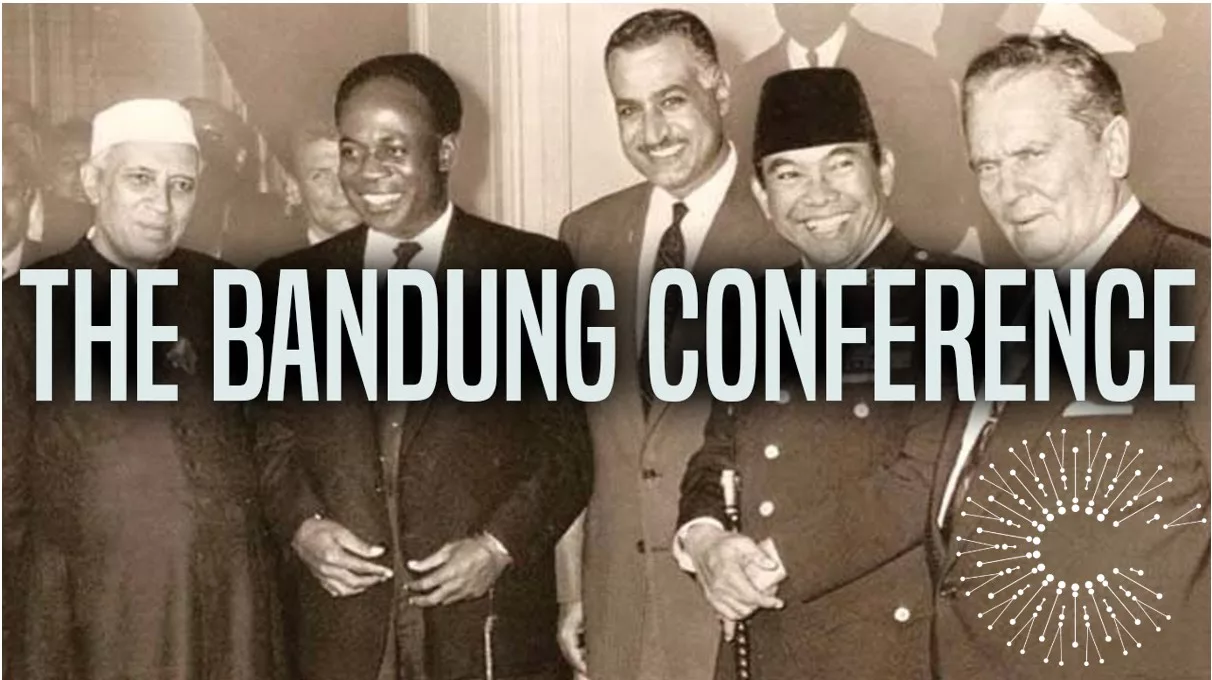< 2 min read –
The Bandung Conference of 1955 –
Indonesia’s Non-Aligned Legacy –
And opportunities for Europe –
In April 1955, the Indonesian city of Bandung hosted a historic gathering that reshaped global diplomacy.
The Bandung Conference, held from April 18 to 24, 1955, brought together leaders from 29 Asian and African nations, representing over half the world’s population.
Initiated and organized by Indonesia (who lead the initiative), India, Burma, Pakistan, and Ceylon (now Sri Lanka), the conference aimed to :
➡️ foster Afro-Asian solidarity
➡️ oppose colonialism and neocolonialism
➡️ and promote economic and cultural cooperation
It was a bold statement of independence from the Cold War’s superpower blocs, led by the United States and the Soviet Union.
The event laid the groundwork for the Non-Aligned Movement (NAM), which championed sovereignty, peace, and non-interference, allowing newly independent nations to chart their own paths without aligning with either superpower.
The “Bandung Spirit” of non-alignment remains a cornerstone of Indonesia’s foreign policy today.
In a world increasingly polarized between the USA and China, Indonesia continues to pursue a non-bloc approach.
This stance positions Indonesia as a dynamic player in global trade, open to partnerships beyond the dominant powers.
For European companies, this presents a unique opportunity to tap into Southeast Asia’s largest market.
In 2024, Indonesia’s total trade with the European Union reached approximately $30 billion, with exports to the EU at $17 billion and imports at $13 billion.
In comparison, trade with China was significantly higher at $150 billion ($70 billion in exports, $80 billion in imports), reflecting China’s regional dominance.
Trade with the United States stood at $36 billion ($25 billion in exports, $11 billion in imports).
These figures suggest room for growth with Europe, particularly as Indonesia seeks to diversify its economic partnerships.
The non-aligned approach encourages Indonesia to “shop” beyond the U.S.-China rivalry.
And Europe, with its advanced technology, sustainable solutions, and high-quality goods, is well-positioned to benefit.
To succeed, European companies must adopt a culturally sensitive and collaborative approach, respecting Indonesia’s sovereignty and priorities.
By leveraging the Bandung Spirit of mutual respect, Europe can forge stronger trade ties, boosting exports and contributing to Indonesia’s growth.
The legacy of 1955 continues to inspire a multipolar world where partnerships thrive on equality, not dominance.
How can you seize this opportunity?
Share your thoughts or questions in the comments below.
We are CINTASIA, and we bring your technology and industrial equipment to Indonesia.
PS: If you enjoyed this article, check out our blog for more, we have published 100+ other articles.
Go to News & Insights – Cintasia
Picture: Sukarno, the then President of Indonesia is second from the right.
